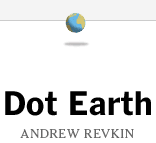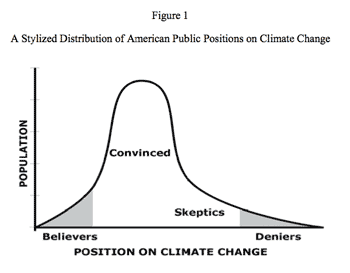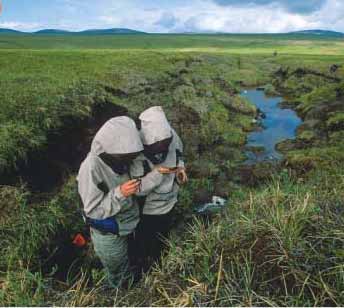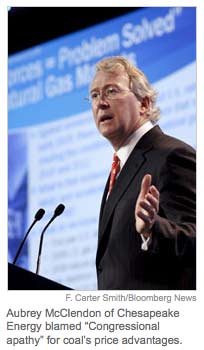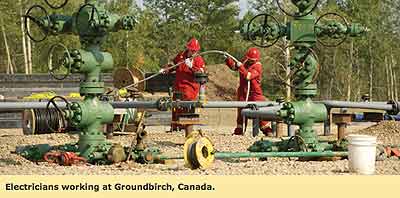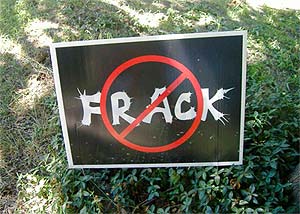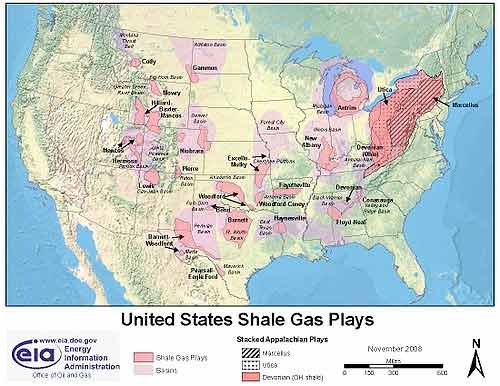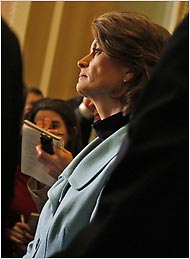Biblio
A list of blogs by members of the Society of Environmental Journalists covering the environment.
The mission of the Society of Environmental Journalists is to strengthen the quality, reach and viability of journalism across all media to advance public understanding of environmental issues.
SEJ provides critical support to journalists of all media in their efforts to cover complex issues of the environment responsibly.
Society of Environmental Journalists Selected Blogs
Coal Tattoo
Ken Ward Jr. of The Charleston Gazette writes about mining's mark on our world.
How to Boil a Frog
Jon Cooksey's funny treatment of the Big Picture — global warming, peak oil, overpopulation, shrinking resources, income inequality — reflects the personal, populist tone and broad scope of his upcoming theatrical docu-comedy of the same name.
Andrew Revkin's Dot Earth and more.
New York Times man Revkin blogs at Dot Earth about climate change, the environment and sustainability; at Amazon on global warming; and also talks to kids via this NYT global warming website.
Listening to climate change doubters, and not dismissing them, might avert a "logic schism" similar to the political stalemate on abortion, according to a new paper involving research on skeptics.
The paper (pdf) portrays doubters as being at a disadvantage. The majority of climate research comes from the fields of physical science, engineering and economics -- largely depicting rational outcomes in a world dominated by the view that the Earth is warming, and that something needs to be done about it.
What's missing, the research says, are studies that seek to understand the cultural responses of people who question those findings. It's no surprise, after all, that a large segment of humans resist the majority opinion -- on nearly every topic.
Most skeptical writers haven't accepted the scientific underpinnings of rising temperatures, while advocates for action are promoting policies to address the findings.
See: Global Warning | The environment and national security.
See: Hoffman, Andrew J. “Talking Past Each Other? Cultural Framing of Skeptical and Convinced Logics in the Climate Change Debate.” Ann Arbor 1001 (2011): 48109.
See: Kate. (Blog). ClimateSight | Climate Science and the Public. 2011.
Kate is a B.Sc. student and aspiring climatologist from the Canadian Prairies.
She became interested in climate science several years ago, and increasingly began to notice the discrepancies between scientific and public knowledge on climate change. She started writing [ClimateScience] when she was sixteen years old, simply to keep herself sane, but she hopes she’ll be able to spread accurate information far and wide while she does so.
There’s more carbon locked up in the high north’s permafrost than the combined total released into the atmosphere by humans. The big melt going on right now in the Arctic could trigger a train of catastrophic events across the world.
The Arctic’s soil and permafrost hold nearly twice as much carbon as the earth’s atmosphere, dwarfing the amount of carbon emitted to date by burning fossil fuels. Since the industrial revolution our dependence on coal and oil has ratcheted up the atmosphere’s carbon content, from 560 to 760 gigatons. Permafrost holds an estimated 1,400 gigatons of carbon.
In addition to carbon dioxide, the frozen source is releasing methane, a greenhouse gas 25 times more potent, though it stays in the atmosphere for only a decade rather than for millennia. The gas is bubbling up from land and also from a large, previously overlooked source: permafrost submerged beneath the Arctic Ocean. It’s too early to say whether this is a newly observed steady leak, or if it signals the beginning of a flood of methane.
See: Arctic Thaw May Release Greenhouse Gases from Siberian Peat Bogs
Virginia Smitske's son from Hickory PA narrates. Their water is tainted and government regulations have proven ineffective. They buy a lot of bottled water.
Here is a picture of the brown water. It's not always this brown, but its always full of toxins!
It's strange how people are so scared of the swine flu, but when you talk about how the gas drillers are poisoning our water, people think you're crazy, or they get mad because they think they can get rich off the deal the gas company is promising.
The money is more important to them than their health.
As I see it, there are two incommensurate stories being told about climate change. I'm not talking about the largely fake debate between those who say climate change is happening and human-driven (scientists) and those who say it isn't (the GOP).
I'm talking about two different ways of envisioning what we can expect in a climate-changed future, both of which exist among people who take climate change seriously. Sometimes they take up residence in the same head! Like, er, mine. But they don't fit together very well. One comes to us from science, the other from economics.
...Getting clear on this is ultimately going to require a lot of progress in both science and economics. But for my part, when I see scientists panicking and economists telling me not to panic ... my palms start sweating.
...We are stumbling around in the dark, in an area where scientists tell us some very, very nasty beasties dwell. In that situation, it seems to me the overwhelming bias should be toward action -- getting lean, mean, and nimble enough to handle ourselves no matter what slouches our way.
See: EPA chief faces hostile House GOP
See: Beware The Green Dragon! | Right Wing Watch
See: Energy & Commerce Committee Investigates Potential Impacts of Hydraulic Fracturing
See also: Republicans ask court to toss climate case
Grist Staff Bio
David Roberts, Staff Writer
droberts@grist.org
206.876.2020 ext. 220
David was born and raised in the South. A revelatory summer working in Yellowstone National Park convinced him that it was not the world but just the part where he lived that sucked, so he moved out West. After several wayward years spent snowboarding and getting an MA in philosophy (go griz), he woke up with nothing but a dissertation between him and an arid, cloistered life spent debating minutiae with the world's other 12 Dewey scholars. So he bailed. A period was spent trudging through the swamp of Seattle tech work, wading past Amazon.com, IMDb.com, and Microsoft, before the fine folks at Grist fell for his devastating good looks in December 2003.
Using the latest in satellite imagery, aerial photography, and Google Earth technology, this ten minute SkyTruth video explores the environmental impacts of gas and oil drilling in the Upper Green River Valley, an ecologically sensitve area of western Wyoming.
See the view of the Upper Green Valley in Wyoming from the air and the effect of hundreds of gas drilling well pads. According to SkyTruth, 10,000 well pads have been proposed.
Good job Mr. Kunstler!
If you're offended by salty language, he may not be for you, but the tricks of Big Gas should offend you a whole helluva lot more.
The real story of what happened to the family in Texas that Ms. Stahl did not go into nearly enough. Fracking also reduced their land value from $257,330 on the 2010 tax rolls to its current value of $75,340.
--Vincent Alabama Confidential, outspoken Alabama political bloggers.
So, last night [2010-11-14] CBS hauled Aubrey McClendon, CEO of Chesapeake Energy, on board their flagship Sunday infotainment vehicle, 60 Minutes, to blow a mighty wind up America's ass (as they say in professional PR circles). America is lately addicted to lying to itself, and 60 Minutes has become the "go-to" patsy for funneling disinformation into an already hopelessly confused, wishful, delusional, US public.
McClendon told the credulous Leslie Stahl and the huge viewing audience that America "has two Saudi Arabia's of gas." Now, you know immediately that at least half the viewers misconstrued this statement to mean that we have two Saudi Arabia's of gasoline.
Translation: don't worry none about driving anywhere you like, or having to get some tiny little pansy-ass hybrid whatchamacallit car to do it in, and especially don't pay no attention to them "green" sumbitches on the sidelines trying to sell you some kind of peak oil story.... It also prepared the public to support whatever Mr. McClendon's company wants to do, because he says his company will free America from its slavery to OPEC. By the way, CBS never clarified these parts of the story by the end of the show.
Fossil fuels have powered human growth and ingenuity for centuries. Now that we're reaching the end of cheap and abundant oil and coal supplies, we're in for an exciting ride. While there's a real risk that we'll fall off a cliff, there's still time to control our transition to a post-carbon future.
See:Heinberg, Richard, and Daniel Lerch. The Post Carbon Reader: Managing the 21st Century's Sustainability Crises. 1st ed. University of California Press, 2010.
Music clip used in video below: Reed, Lou. Walk On The Wild Side (1972). RCA/BMG Heritage, 2002.
Post Carbon Institute provides individuals, communities, businesses, and governments with the resources needed to understand and respond to the interrelated economic, energy, and environmental crises that define the 21st century. We envision a world of resilient communities and re-localized economies that thrive within ecological bounds.
Climate change, the end of cheap fossil fuels, and our growth-dependent global economy are creating challenges of a scale and complexity never before seen. These unprecedented challenges call for wholly new approaches.
Post Carbon Institute has gathered 29 of the world's leading experts to point the way forward through a systems oriented, interdisciplinary, and collaborative approach. Through strong partnerships with the Transition Initiative movement and other leading innovators, we work to transform lives and communities through a powerful combination of integrated thinking and replicable direct action. These symbiotic relationships among on-the-ground leaders and grassroots organizers provide the opportunity to immediately implement and test generated ideas and strategies.
The Institute has developed a number of programs and initiatives that further its mission. Visit our program page to learn more.
See: Paul Tolme. 2010-05-14. National Wildlife Federation. "The Dirty Truth Behind Clean Natural Gas".
Flavin, C., and S. Kitasei. The Role of Natural Gas in a Low-Carbon Energy Economy. Briefing paper. Natural Gas and Sustainable Energy Initiative. Washington, D.C.: Worldwatch Institute, 2010. (PDF, 617kb)
Read this assessment by Robert W. Howarth, of Cornell University, who writes, "natural gas is far less attractive than other fossil fuels in terms of the consequences for global warming."
See: Natural Gas Drillers Protest Nomination of Fracking Critics for EPA Review Panel
Sierra Club Finger Lakes Group Gas Information Page.
Website includes Editorial by Gene Stolfi, Winter 2009. "Marcellus Shale —To Drill or Not To Drill?" Finger Lakes Group ExCom, Steuben Environmental Management Council
This web page includes links to scientific background information, Documents of Interest: "MSDS Data Sheets from NYS DEC for 48 Fracking Chemicals used in NY".
On May 28, 2010, Bloomberg.com reported that Royal Dutch Shell Plc agreed to buy closely held East Resources Inc., for about $5 billion.
East Resources will no longer be a U.S. corporation.
Author Ken Saro-Wiwa was a member of the Ogoni people, an ethnic Nigerian minority whose hometown, Ogoniland, in the Niger Delta has been targeted for crude oil extraction since the 1950s and which has suffered extreme and unremediated environmental damage from decades of indiscriminate oil waste dumping. Saro-Wiwa, initially as spokesperson, and then as President, of the Movement for the Survival of the Ogoni People (MOSOP), led a nonviolent campaign against environmental degradation of the land and natural waters of Ogoniland by the operations of multinational oil companies, especially Shell.
At the peak of his non-violent campaign, Saro-Wiwa and the other members of the Movement for the Survival of the Ogoni People were arrested, hastily tried by a special military tribunal, and hanged in 1995 by the Nigerian military government of General Sani Abacha, all on charges widely viewed as entirely politically motivated and completely unfounded. Their executions provoked international outrage and resulted in Nigeria's suspension from the Commonwealth of Nations.
Shell has been brought on trial in New York with the accusation of having collaborated with the military executions, and in June 2009, it has settled out of court for US $15 million to bring the case to an end.
See: Ed Pilkington. "Shell pays out $15.5m over Saro-Wiwa killing." The Guardian. June 9, 2009.
See: Jad Mouawad. "Shell to Pay $15.5 Million to Settle Nigerian Case." NYT. June 8, 2009.
Shell Gas Flaring is Illegal Says Benin City High Court
See: Poison Fire
Why the delay in remediation?
See: Shell Oil statement. Flaring in Nigeria.
The gas gathering programme has been delayed by funding shortfalls from the major government shareholder and security concerns which meant it was not safe for staff to work in large parts of the delta for long periods of time.
However, Shell Petroleum Development Company of Nigeria Limited (SPDC) and its partners continue to invest in reducing flares and have resumed work on many delayed projects and started new ones. SPDC is currently improving or installing associated gas gathering (AGG) facilities at 19 flowstations.
In late 2009, projects were sanctioned to install AGG facilities at a further seven flowstations. In total these projects represent an investment of over $2 billion. When all this work is completed it will cover more than 75% of SPDC’s production potential.
Shell and Hydraulic Fracturing
At Shell we have decades of experience with this technology and we continue to follow strict measures to protect drinking water supplies.
Shaleshock Action Alliance is a movement that works toward protecting our communities and environment from exploitative gas drilling in the Marcellus Shale region.
Shaleshock is an alliance of Working Groups which include people who have signed leases, not signed leases, who have been compulsorily integrated, and people who don't own land.
See: A collection of websites and listservs edited by Shaleshock.
See: Updated Calendar of Events For New York and Pennsylvania.
See: Driling 101 - background information on hydraulic fracturing.
"With the rapid development of the shale plays across the U.S., there was a massive influx of lease purchases which drove companies with cash into a bidding frenzy," said Ryan. (Neal Ryan, managing partner at Ryan Oil & Gas Partners LLC.)
"Now many of those companies are being forced to continue drilling plans formulated for a much higher market price in order to protect those lease investments," he said.
That's "a dangerous spot to be in because the domestic market doesn't need this gas right now, but companies are stuck having to protect their capital investment," he said.
EnergyBulletin.net is a clearinghouse for information regarding the peak in global energy supply. It is published by Post Carbon Institute whose goal is to provide a roadmap for a transition to a resilient, equitable, and sustainable world by arming individuals, communities, businesses, and governments with the information and resources they need to understand and take action.
Shale Gas Shenanigans
...These shale gas producers are an asset play. And this outcome obviously benefits the Wall Street banks who lend them money. Indeed, this is their exit strategy from the unprofitable drilling treadmill they are currently on. If shale gas production can be said to be in a bubble, this is where that bubble lies. And the strategy is working! Rigzone reports on the acquisition frenzy...
Energy Bulletin is maintained by three editors, Simone Osborn, Kristin Sponsler, and Bart Anderson, based respectively in Bristol, UK, and California USA. Adam Grubb (writing as Adam Fenderson) and Liam Cranley of Melbourne, Australia, founded Energy Bulletin in 2004.
On January 14, 2009, Energy Bulletin was adopted as a core program by the Post Carbon Institute. Except for PCI, Energy Bulletin is unaffiliated with any private, government, or institutional body.
Shale gas in the United States is rapidly increasing as a source of natural gas. Led by new applications of hydraulic fracturing technology and horizontal drilling, development of new sources of shale gas has offset declines in production from conventional gas reservoirs, and has led to major increases in reserves of US natural gas.
Please note that information taken from Wikipedia should be verified using other, more reliable sources. It is a good place to start research, but because anyone can edit Wikipedia, we do not recommend using it in research papers or to obtain highly reliable information.
Shale gas has plenty of detractors.
Environmentalists say fracking, a process in which drillers blast water into a well to shatter rock and unleash the gas, threatens pristine watersheds. Dish, a hamlet of 180 residents north of Fort Worth, Texas, has almost as many wells, compressors and pipelines as people.
‘Children, Old People’
Last year, the Texas Commission on Environmental Quality found benzene, which it classifies as a carcinogen, at 10,700 times the safe long-term exposure limit next to a well 6 miles (10 kilometers) west of town on which a valve had been left open.
“We have children, old people, pregnant women,” Mayor Calvin Tillman says. “They’re not supposed to be subjected to toxins.”
Switzer, who moved to Dimock Township, Pennsylvania, to build a $350,000 dream home with her husband, Jimmy, in 2004, had no idea how shale gas would consume her village of 1,400.
She says she found so much methane in her well that her water bubbled like Alka-Seltzer. Neighbor Norma Fiorentino says methane in her well blew an 8-inch-thick (20-centimeter-thick) concrete slab off the top. The $180 bonus Cabot paid to drill on Switzer’s 7.2 acres (2.9 hectares) and the $900 in royalties she gets each month don’t compensate, she says.
‘Beads and Baubles’
“I feel like one of the Indians who sold Manhattan for beads and baubles,” she says.
The economics of shale don’t look great right now for big companies either. Natural gas prices plunged to $2.41 per MMBtu in September 2009 from $13.69 in July 2008 as the recession cut demand while drilling accelerated. On May 24, gas traded at $4.04.
Includes related videos: John Hanger, secretary of Pennsylvania’s Department of Environmental Protection, talked with Bloomberg's John Lippert in Harrisburg, Pennsylvania, on May 13 about regulation of shale-gas drilling operations in the commonwealth.
By JOHN M. BRODER, New York Times, January 21, 2010. "In a direct challenge to the Environmental Protection Agency’s authority, Senator Lisa Murkowski, Republican of Alaska, introduced a resolution on Thursday to prevent the agency from taking any action to regulate carbon dioxide and other climate-altering gases."
Senator Lisa Murkowski is challenging the authority of the Environmental Protection Agency.









